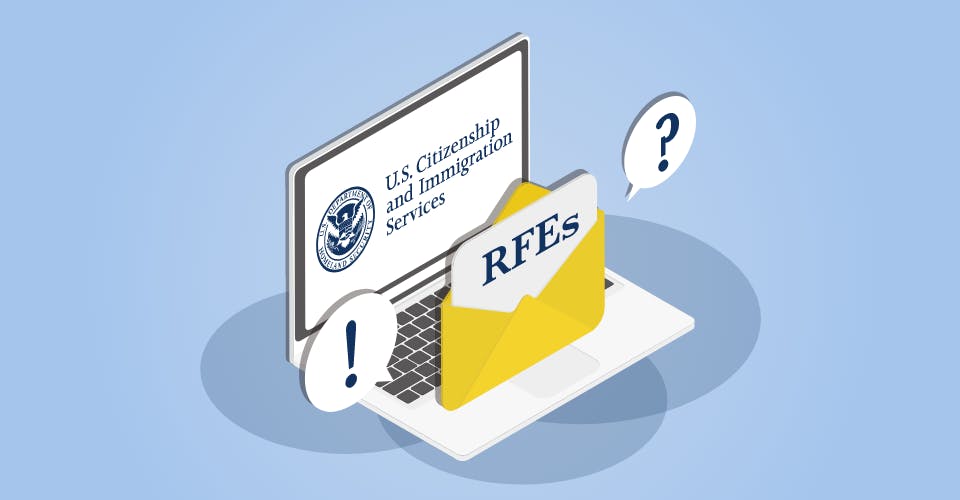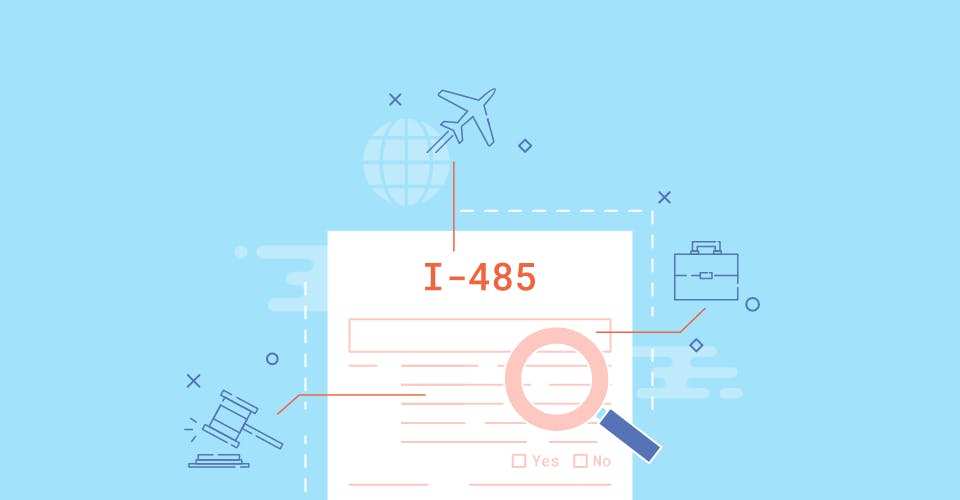RFEs stands for Requests for Evidence. If you are an immigration applicant (mostly for I-485 adjudications and employment/family-based applicants), and you receive an RFE, it does not mean that your application is going to be denied, rather it is a way for the USCIS to further adjudicate your case and decision.
The USCIS does not regularly use email to communicate with clients/applicants, so if you receive an RFE for an ongoing application process it will come in the mail. Due to Covid-19, however, the U.S postal system has been backed up because of an increase in online shopping. Thus an RFE might come at least one month after it was initially sent. The USCIS will request additional evidence for one of the following:
1. Missing evidence from supporting documentation. If you are married and did not attach a marriage certificate to your application package, for example, the USCIS will request that you do.
2. Missing proof of a legal entry. Your I-94 should suffice for this purpose.
3. Missing document translations. The USCIS processes cases in English, so it will be important for any applicant, whether its an immigrant or non-immigrant case, to make sure your supporting documents are translated before being sent in.
4. A petitioner or sponsor is lacking evidence or does not qualify for sponsorship based on federal poverty guidelines per household size.
Toward a consistent standard of proof
With respect to RFEs, the Brookings Institute, an American research group, and organization that focuses on public policy has commented on the issue of RFEs in a recent article that is critical of the Trump Administration’s handling of immigration in the past four years. They note that the previous administration created new obstacles and hurdles in terms of immigration processing, thus creating longer backlogs and higher numbers of RFEs being seen today.
Brookings cites that “RFEs have gone up 78 percent in the last five years” and started accelerating in 2016. This has to do with immigration adjudicators now looking for a standard of proof that is “beyond a reasonable doubt” for each applicant. However, the standard of proof that used to be acceptable was “a preponderance of evidence”, one peg down, thus scrutinizing over cases now more than ever. One recommendation for the USCIS under a new Administration would be to use an appropriate standard of proof for all cases in order to decrease processing times.
Employment-based Immigration
The RFE issue has created the most problems for employment-based visa/green card applicants. Because of the RFE system and the USCIS only using mail, it can be difficult for employers to hire and retain an employee when their immigration case is incomplete due to an RFE and an unknown wait time. As such, here are some things to be aware of as an immigrant applying for work authorization in the United States/planning to immigrate based on a work petition:
- Applicants should communicate with employers to let them know about the ongoing problem with the U.S. postal service delays
- Applicants planning on bringing dependents to the U.S. should know that the USCIS ended a long-standing policy in 2017, and now adjudicate dependents separately
- Applicants should be ready to receive faxes from select USCIS offices
Overall, a new President might mean sweeping immigration reforms, but it is also likely that even if this does not happen, the USCIS might start simply using email to communicate with clients faster, especially in the case of employment-based applications where it is much needed.














